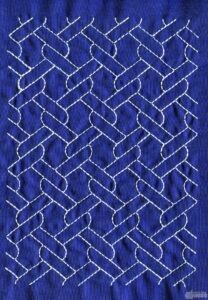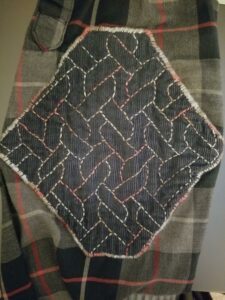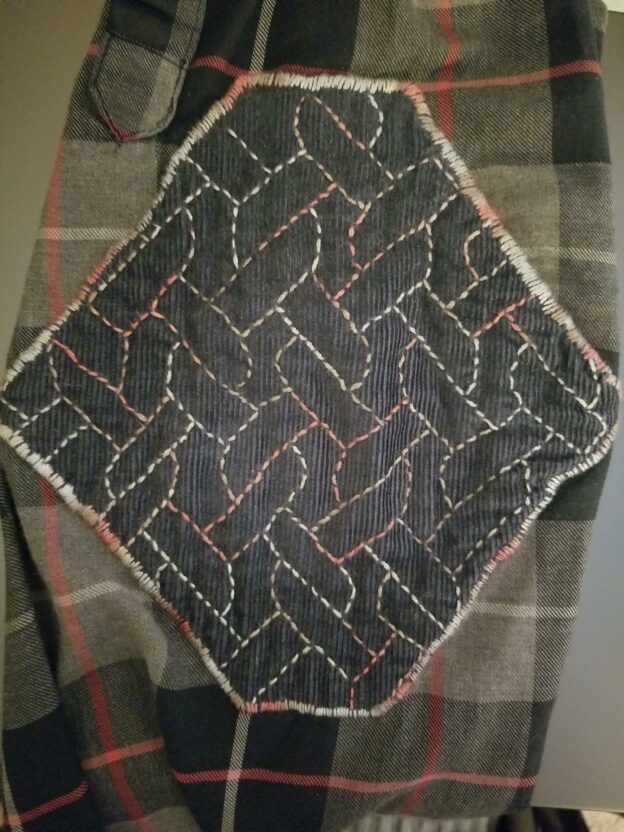After succeeding with the jeans (which now need a repair at the back pocket seam just like the other ones the same age), my next project was the elbow of my husband’s flannel shirt. I really wanted to use fabric from his old corduroy overshirt, and thankfully there was a nice stretch of it that hadn’t faded or worn too much. He picked this pattern:

Technically, this isn’t a sashiko design as it doesn’t leave the right amount of space between stitches. However, it does still work well if you make the adjustment. (As an aside, if you go looking for images of sashiko patterns and find them saved to Pinterest, 90% of the time they’ll be linked via a scraped or malware-infested site. Especially if they look like the one above. Don’t bother clicking through to find more or get pointers. Just save the image and move on.)
The fabric of the shirt was seriously shredded, so I had to baste on an inner patch in addition to the outer one. This meant two hems, which I didn’t do a great job of aligning atop each other because I stitched the pattern before the edging. On the other hand, it meant less of a ridge around the edge in most places. Still, from now on I’ll be sewing the edges first to avoid this issue.

The thread I used is by Cottage Garden Threads, 6-strand in colorway Earl Grey, from Snuggly Monkey. It is EXACTLY the colors of the base shirt and I couldn’t believe it when I first saw it. Sadly, several of the other supplies I got from the site weren’t made to work with corduroy, and I ended up mostly drawing the pattern as I went so as to keep it from rubbing completely off. If you do this, I recommend keeping track of your grid with something better than holes poked in graph paper. Me, I’ll be trying to solve the alignment problem and the grid problem together by basting through marked tissue paper. Sometime later, because my next project is another can of worms entirely.
